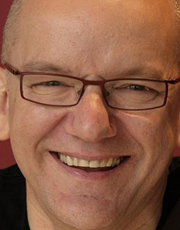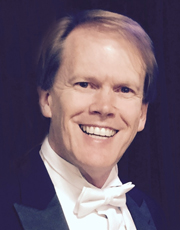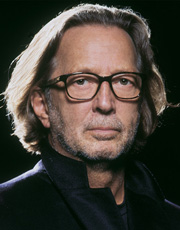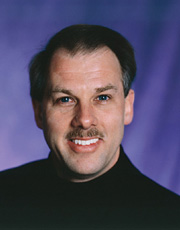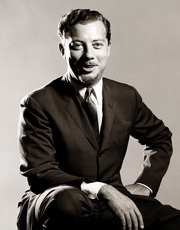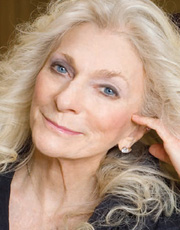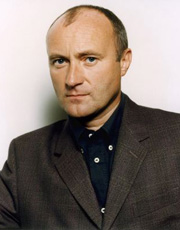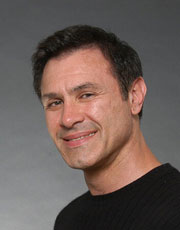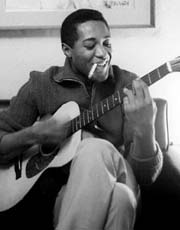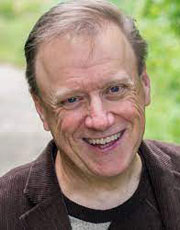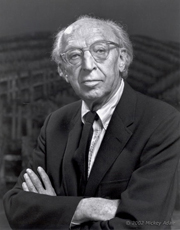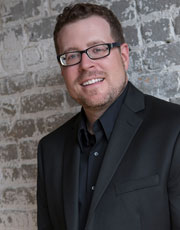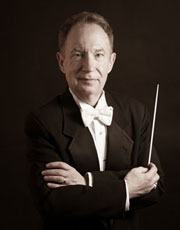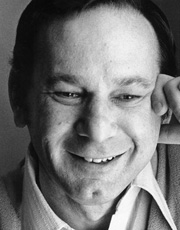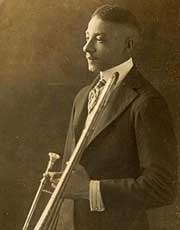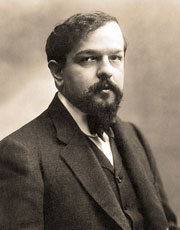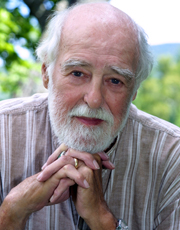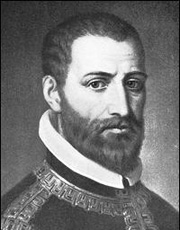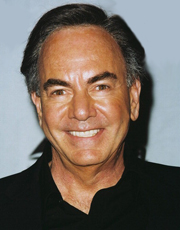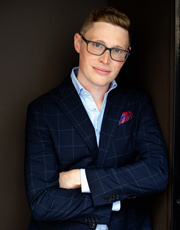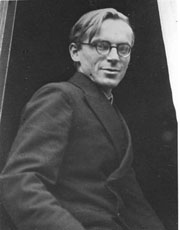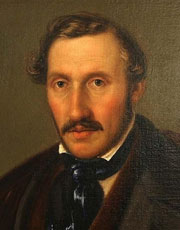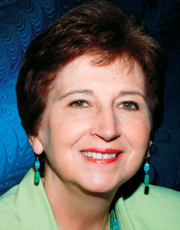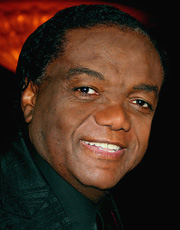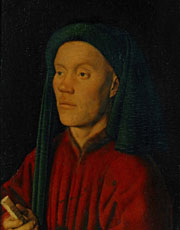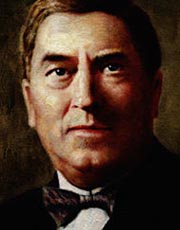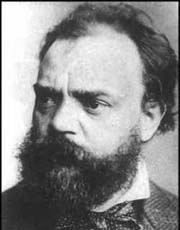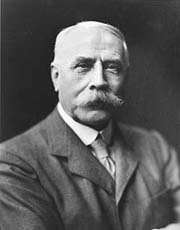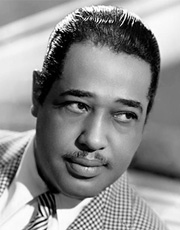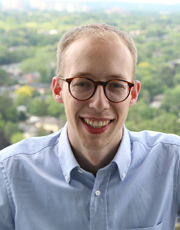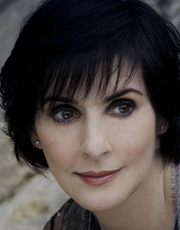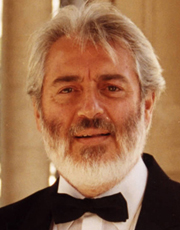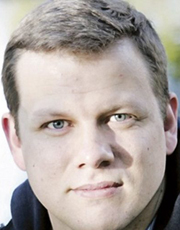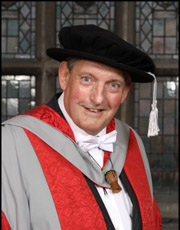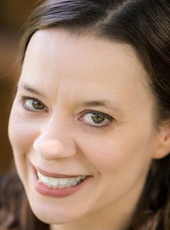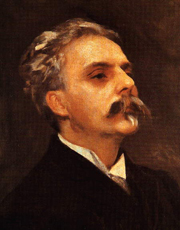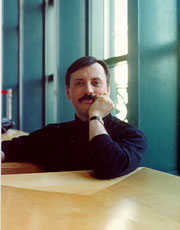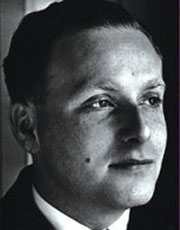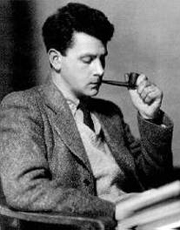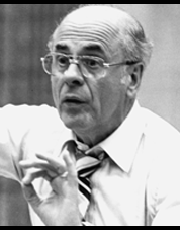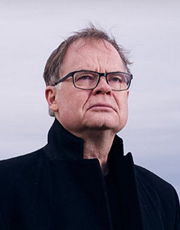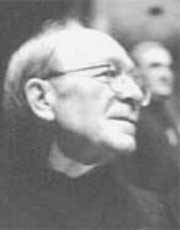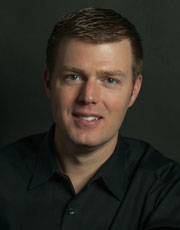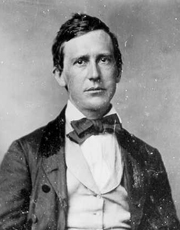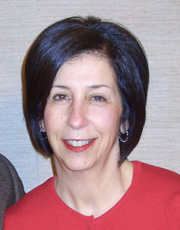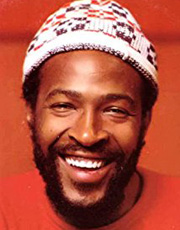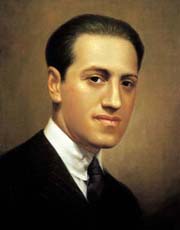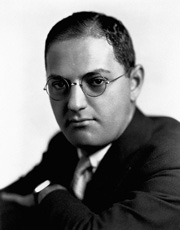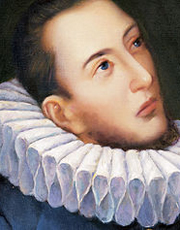In Celebration of the Human Voice - The Essential Musical Instrument
Home | Doo Wop | Barbershop | World | Contemporary | Christian | Vocal Jazz | Choral | Christmas | Instructional | Arrangements
Classical | Opera | Musicals | Personality | Young Singers | Disney | Videos | Songs | The Artists

Choral Composers
So much of what many of us would think of as choral music is traditional, centuries-old works, things our parent and grandparents grew up with, but that’s really not the be-all and end-all of choral works. There are many talented, genius composers of the last century and a bit, who have created some beautiful, stellar works that are being sung by choirs around the world today. Why not check out some of these brilliant men and women’s work? If you’ve never tried modern choral work, you’re in for a lovely surprise. Why not treat yourself to that surprise today?
![]() Composers - Early Music | Classical | 20th Century | Modern
Composers - Early Music | Classical | 20th Century | Modern
Displaying 51 - 100 of 309 items.
Bob Chilcott
Described by the Observer newspaper as "a contemporary hero of British choral music", Bob Chilcott has always been immersed in the choral tradition of his country. He sang as a chorister and choral scholar at King's College, Cambridge, and after singing professionally in London and also as a member of the vocal group the King's Singers for 12 years, he became a full-time composer in 1997. He has embraced his career with energy and commitment, not only producing a large catalogue of music for all types of choirs, but also working with singers and choirs in more than 30 countries.
Pepper Choplin
Pepper Choplin is a full-time composer, conductor and humorist. He has gained a reputation as one of the most creative writers in church music today. With a Bachelor of Music degree from the University of North Carolina at Greensboro, he went on to earn a Master of Music degree in composition from Southwestern Baptist Theological Seminary.
Currently, he attends Greystone Baptist Church in Raleigh, North Carolina, where he served as music minister for twenty-two years. There in his hometown, Choplin has conducted several mass performances of his Easter and Christmas cantatas in Meymandi Auditorium (home to the NC Symphony) with over two hundred voices and full orchestra.
Eric Clapton
Eric Patrick Clapton, CBE, is an English rock and blues guitarist, singer, and songwriter. He is the only three-time inductee to the Rock and Roll Hall of Fame: once as a solo artist and separately as a member of the Yardbirds and Cream. Clapton has been referred to as one of the most important and influential guitarists of all time. Clapton ranked second in Rolling Stone magazine's list of the "100 Greatest Guitarists of All Time" and fourth in Gibson's "Top 50 Guitarists of All Time" He was also named number five in Time magazine's list of "The 10 Best Electric Guitar Players" in 2009.
Rene Clausen
Rene Clausen's has served as conductor of The Concordia Choir of Concordia College, Moorhead, Minnesota since 1986. Additionally, he is the artistic director of the award-winning Concordia Christmas Concerts, which are frequently featured by PBS stations throughout the nation.
Rene Clausen is a well-known composer. His compositional style is varied and eclectic, ranging from works appropriate for high school and church choirs to more technically-demanding compositions for college and professional choirs. Interested in composing for various media, Clausen's compositional interests include works for the stage, solo voice, film and video composition, choral/orchestral compositions and arrangements, as well as works for orchestra and wind ensemble. He regularly composes on a commission basis, and is a frequent guest conductor and composer-in-residence on a national basis.
Cy Coleman
Coleman was born Seymour Kaufman on June 14, 1929, in New York City to Eastern European Jewish parents, and was raised in the Bronx. His mother, Ida (nee Prizent) was an apartment landlady and his father was a brickmason. He was a child prodigy who gave piano recitals at Steinway Hall, Town Hall, and Carnegie Hall between the ages of six and nine. Before beginning his fabled Broadway career, he led the Cy Coleman Trio, which made many recordings and was a much-in-demand club attraction.
Judy Collins
Judith Marjorie "Judy" Collins is an American singer and songwriter known for her eclectic tastes in the material she records (which has included folk music, show tunes, pop music, rock and roll and standards) and for her social activism.
Collins' debut album A Maid of Constant Sorrow was released in 1961, but it was the lead single from her 1967 album Wildflowers, "Both Sides, Now" - written by Joni Mitchell - that gave Collins international prominence. The single hit the Top 10 on the Billboard Pop Singles chart(1) and won Collins her first Grammy Award for Best Folk Performance.(2) She enjoyed further success with her recordings of "Someday Soon", "Chelsea Morning", "Amazing Grace", and "Cook with Honey".
Phil Collins
While other major artists trudge painfully through a handful of over promoted releases each decade; this drummer/actor/singer/producer has been constantly active in all manner of contradictory and unlikely projects. His history with Genesis is well documented from their art-house beginnings to multi-platinum status as the band grew up, lost Steve Hackett and then Peter Gabriel and ended up making videos with tongues firmly in their cheeks. Collins launched his solo career twenty nine years ago with "Face Value" ('81), followed by "Hello, I Must Be Going" ('82), "No Jacket Required" ('85), "...But Seriously" ('89), "Both Sides" ('93), "Dance Into The Light" ('96) and "Testify" ('02) picking up numerous awards including 7 Grammy's, 2 Oscar nominations and a Golden Globe for "Two Hearts". After leaving Genesis in 1996 he released a "Hits" album in 1998. Between Phil's solo and Genesis recordings and excluding his other activities, Phil has sold over 200 million records.
David Conte
One of the last students of legendary teacher Nadia Boulanger, David Conte has been Professor of Composition and Conductor of the Conservatory Chorus at the San Francisco Conservatory of Music since 1985, and Composer-in-Residence for the San Francisco theater company Thick Description since 1990. He is the composer of over seventy published works, including five operas, a musical, works for chorus, solo voice, orchestra, chamber music, organ, piano, guitar, and harp. With composer Todd Boekelheide, Conte co-wrote the film score for the documentary Ballets Russes, shown at the Sundance and Toronto Film Festivals in 2005, (now available on DVD) and composed the music for the PBS documentary, Orozco: Man of Fire in 2006, shown on the American Masters Series in the fall of 2007.
Sam Cooke
Samuel Cook (January 22, 1931 - December 11, 1964), known professionally as Sam Cooke, was an African-American gospel, R&B, soul, and pop singer, songwriter, and entrepreneur. He is considered to be one of the pioneers and founders of soul music. He is commonly known as the King of Soul for his unmatched vocal abilities and influence on the modern world of music. His contribution in pioneering Soul music led to the rise of Aretha Franklin, Bobby Womack, Al Green, Curtis Mayfield, Stevie Wonder, Marvin Gaye, and popularizing the likes of Otis Redding and James Brown.
Cooke had 29 top-40 hits in the U.S. between 1957 and 1964. Major hits like "You Send Me", "A Change Is Gonna Come", "Chain Gang", "Wonderful World", and "Bring It on Home to Me" are some of his most popular songs. Cooke was also among the first modern black performers and composers to attend to the business side of his musical career. He founded both a record label and a publishing company as an extension of his careers as a singer and composer. He also took an active part in the American Civil Rights Movement.
Rory Cooney
Rory Cooney has been Director of Liturgy and Music Ministries at St. Anne Catholic Community in Barrington, Illinois, since 1994. His published compositions span a career of songwriting that began nearly 35 years ago, and continues to the present, as he tries to write to the needs of the church and the communities in which he serves. Early compositions were published by Composers' Forum for Catholic Worship and Resource Publications in the 1970s, and his works are represented in Gather and RitualSong, as well as other publications.
His recording career began in 1984, and virtually all of his recordings have been collaborations with his wife, Theresa Donohoo, and Gary Daigle. His most recent work with GIA has been the collection Today and Terry Donohoo's Family Resemblance.
Rory travels with Theresa and Gary Daigle giving concerts, days of renewal, missions, and workshops for parishes, dioceses, and organizations.
Aaron Copland
Copland born in Brooklyn, New York. Of Russian Jewish descent, he spent his childhood living above his parents' Brooklyn shop. Although his parents never encouraged or directly exposed him to music, at age fifteen he had already taken an interest in the subject and aspired to be a composer. His music education included time with Leopold Wolfsohn and Rubin Goldmark, also one of George Gershwin's teachers, and with Nadia Boulanger in Paris from 1921.
Upon his return from his studies in Paris, he decided that he wanted to write works that were 'American in character' and thus he chose jazz as the American idiom. His first significant work was the necromantic ballet Grohg which contributed thematic material to his later Dance Symphony. Other major works of his first (austere) period include the Short Symphony (1933), Music for Theater (1925) and Piano Variations (1939). This jazz inspired period was brief, however as his style evolved toward the goal of writing more accessible works.
Matthew Culloton
Matthew Culloton is the Founding Artistic Director and Conductor of The Singers - Minnesota Choral Artists. In August 2010, Matthew became Choirmaster at The House of Hope Presbyterian Church in St. Paul. He holds degrees from Concordia College, Moorhead (B.M. in Music Education) and the University of Minnesota (M.M. in Choral Conducting, D.M.A. in Conducting). Matthew has studied conducting with Rene Clausen, Kathy Romey, Craig Kirchhoff, Paul Nesheim, Matthew Mehaffey, Mark Russell Smith, and Bruce Houglum.
As a composer, Matthew has been commissioned by The Singers, the Dale Warland Singers, Choral Arts Ensemble of Rochester (MN), Ames Chamber Artists, Chanson, the Minnesota MMEA All-State Choir, and numerous high school, collegiate, and church choirs.
Gerald Custer
Gerald Custer is a multifaceted choral musician, active as conductor, composer, editor, teacher and author. A native of Baltimore, he earned his B.Mus. in choral music education at Westminster Choir College, where he studied conducting with Robert Simpson, Dennis Shrock and Robert Carwithen, choral literature with Elaine Brown, and composition with Harold Zabrack and Malcolm Williamson. He also served as assistant conductor of Westminster's Collegium Musicum, directed student choral and operatic ensembles, and participated in conducting master classes with Wilhelm Ehmann and Robert Shaw.
He earned the M.Mus. in orchestral conducting with additional work in historical musicology at George Washington University, where he founded and conducted the University Chamber Singers and served as assistant conductor of the Alexandria (Virginia) Symphony Orchestra. While a graduate student at GWU, Mr. Custer was appointed adjunct instructor in the university's Department of Music, teaching voice and music theory in the Columbian College of Arts and Sciences. He is presently pursuing the Doctor of Musical Arts in choral conducting at Michigan State University.
Hal David
David was born in New York City, a son of Austrian Jewish immigrants Lina (nee Goldberg) and Gedalier David, who owned a delicatessen in Brooklyn, and younger brother of American lyricist and songwriter Mack David. He is credited with popular music lyrics, beginning in the 1940s with material written for bandleader Sammy Kaye and for Guy Lombardo. He worked with Morty Nevins of The Three Suns on four songs for the feature film Two Gals and a Guy (1951), starring Janis Paige and Robert Alda.
he same name.
David and Bacharach were awarded the 2011 Gershwin Prize for Popular Song, bestowed by the Library of Congress, the first time a songwriting team was given the honor. David was recuperating from a recent illness and was unable to attend the Washington D.C. presentation ceremony in May 2012.
William Dawson
African American composer, performer, and music educator William Levi Dawson (1899-1990) used the rich vitality of his musical heritage as a basis for all types of music, including arrangements of folk songs and original compositions.
William Levi Dawson was born on September 26, 1899, in Anniston, Ala. At the age of 13 he entered Tuskegee Institute and graduated in 1921 with first honors. He received the bachelor of music degree from the Horner Institute of Fine Arts in Kansas City, Mo., in 1925. He studied composition under Felix Borowski at the Chicago Musical College and under Adolph Weidig at the American Conservatory of Music. In 1927 he received the master of music degree from the American Conservatory of Music in Chicago.
Claude Debussy
Claude Debussy was a French composer. He is sometimes seen as the first Impressionist composer, although he vigorously rejected the term. He was among the most influential composers of the late 19th and early 20th centuries.
Born to a family of modest means and little cultural involvement, Debussy showed enough musical talent to be admitted at the age of ten to France's leading music college, the Conservatoire de Paris. He originally studied the piano, but found his vocation in innovative composition, despite the disapproval of the Conservatoire's conservative professors. He took many years to develop his mature style, and was nearly 40 when he achieved international fame in 1902 with the only opera he completed, Pelleas et Melisande.
With early influences including Russian and Far Eastern music, Debussy developed his own style of harmony and orchestral colouring, derided - and unsuccessfully resisted - by much of the musical establishment of the day. His works have strongly influenced a wide range of composers including Bela Bartok, Olivier Messiaen, George Benjamin, and the jazz pianist and composer Bill Evans. Debussy died from cancer at his home in Paris at the age of 55 after a composing career of a little more than 30 years.
Robert DeCormier
Robert De Cormier was the acclaimed music director of the New York Choral Society for 17 years. Under his leadership the group became renowned for its high standard of excellence in choral singing and unique variety of programming.
As Music Director Emeritus, he guest conducted a performance of the Verdi Requiem in 1990, the Berlioz Requiem at St. Paul's Cathedral, New York City in 1992 and the premiere of a commissioned work, the Missa Iona in 1993 at St. Bartholomew's in New York City. During the 1995-96 season he conducted the operas, Brundibar and The Emperor of Atlantis in Vermont, New Hampshire, Massachusetts and at Merkin Concert Hall in New York.
He has conducted the Vermont Symphony Orchestra and Chorus in performances of the Mozart C Minor Mass, the Verdi Requiem, Vaughan Williams's Dona Nobis Pacem, Haydn's Creation, Beethoven's Missa Solemnis, Carl Orff's Carmina Burana and the Brahms Requiem.
Josquin Desprez
Josquin Des Prez was one of the most influential and widely regarded composers in the history of Western music, so famous that he is known merely by his first name. Josquin was apparently born in the Duchy of Burgundy, in modern Belgium. He spent a large portion of his middle years in various Italian cities as a highly sought master of music, and then retired to Conde (in Northeast France) late in his life. Josquin's extended sojourns in Italy allowed him not only to spread the Northern polyphonic style there, but to pick up some of the Southern vitality noticeable in many of his secular works. However, his extended works are always marked by a subtlety and serenity characteristic of the Franco-Flemish school.
Neil Diamond
Singer and songwriter. Born Neil Leslie Diamond on January 24, 1941, in New York City, USA, Diamond began writing songs while studying at New York University. Neil Diamon is best known as successful pop music singer who scored a number of hits during the 1960s, 1970s, and 1980s -- including writing the hits "I'm A Believer" (1966) and "A Little Bit Me, A Little Bit You" (1967) for the Monkees. He had his own first number 1 hit with "Cracklin' Rose" (1970).
Diamond's albums include Jonathon Livingston Seagull (1974), Headed for the Future (1986), Tennessee Moon (1996), and 12 Songs (2005). His songs have been taken up by many recording artists, including The Hollies, Elvis Presley, and UB40.
Diamond's musical contributions will be honored when he'll be inducted into the Rock and Roll Hall of Fame in 2011.
Dominick DiOrio
Dominick DiOrio is a conductor and composer who has won widespread acclaim for his contributions to American music. He has been recognized with The American Prizes in both Choral Composition (2014) and Choral Performance (2019, with NOTUS). In July 2020, he became the 14th Artistic Director & Conductor of the Mendelssohn Chorus of Philadelphia, now in its 150th season, where he has had the honor of preparing the singers for performances with The Philadelphia Orchestra.
As a composer, DiOrio has been hailed for a keenly intelligent, evocative style, which shows "a tour de force of inventive thinking and unique colour" (Gramophone). His over 50 published works have appeared at major venues around the world including the Sydney Opera House, Lincoln Center, and Carnegie Hall. He writes music for singers and players of all ages and experiences, and his recent commissioning partners include the San Francisco Gay Men's Chorus, the Children's Chorus of Washington, the Worcester Youth Orchestras, The Choral Arts Society of Washington, and "The President's Own" United States Marine Band.
Hugo Distler
Born in Nuremberg, Hugo Distler is known mostly for his sacred choral music. He attended Leipzig Conservatory first as a conducting student with piano as his secondary subject, but changing later, on the advice of his teacher, to composition and organ. He became organist at St. Jacobi in Lubeck in 1931. In 1933 he married Waltraut Thienhaus. That same year he joined the NSDAP: reluctantly, but his continued employment depended on his doing so. Distler also taught at the School for Church Music in Spandau, and became a professor of church music in Berlin in 1940.
Becoming increasingly depressed from the death of friends, aerial attacks, job pressures, and the constant threat of conscription into the German army, he committed suicide in Berlin at the age of 34. He chose to end his life by his own hand (with fumes from his own gas oven) rather than be conscripted into the Wehrmacht.
His work is polyphonic and frequently melismatic, often based on the pentatonic scale. Because of these characteristics, his work was stigmatized by some Nazis as "degenerate art." Distler enjoyed his first success in 1935 at the official Kassel Music Days (Kasseler Musiktage).
Gaetano Donizetti
Gaetano Donizetti was among the three great leaders of the opera style known as 'bel canto', the other two being Rossini and Bellini. Donizetti's skills in music were discovered at a very early stage. He was just nine years old when he was enrolled in the Lezioni Caritatevoli School on a full scholarship. As a composer, Donizetti mastered both comic and serious operas and composed 71 operas in his lifetime. His success came with his famous opera, 'Zoraida di Granata', which was noticed by Domenico Barbaia, a famous theatre manager, and Donizetti signed a contract to compose in Naples. He achieved minor popularity in the 1820's, but with his 'Anna Bolena', he gained instant popularity in 1830. This opera was premiered in Milan and he became a famous opera personality throughout Europe. Shortly after, he composed 'Lucia di Lammermoor', which was deemed as his most renowned opera. His works were greatly influenced by Rossini and Bellini and he, like them, staged some of his compositions in Paris, 'Marin Faliero' being one of them. Unfortunately, Paris did not bring him any fame and he turned to Naples. In 1838, he relocated to Paris. He was appointed the music director for the Italian opera at Karntnertortheater and lived in Paris for the rest of his life. Donizetti is remembered for his operas and his style of composition influenced many contemporary and later writers
Mary Donnelly
Mary was born and raised in Reno, Nevada. She earned a Bachelor of Arts Degree from the University of Nevada, Reno with a double major in English and French. While still a college student, she helped to organize two children's choruses and enjoyed it so much that she decided to go back to school and become certified to teach music. She later received a Master's Degree in Education from Lesley College in Cambridge Massachusetts. The courses emphasized integrating the arts in the classroom.
Mary is currently retired, having taught general music and choir in elementary and middle school for thirty years in the Washoe County School District (Reno, Nevada). She is a member of ACDA, NEA, and ASCAP.
Lamont Dozier
Lamont Herbert Dozier is an American songwriter and record producer, born in Detroit, Michigan. Dozier has co-written and produced 14 US Billboard #1 hits and 4 number ones in the UK.
Dozier is best known as a member of Holland-Dozier-Holland, the songwriting and production team responsible for much of the Motown sound and numerous hit records by artists such as Martha and the Vandellas, The Supremes, The Four Tops, and The Isley Brothers. Along with Brian Holland, Dozier served as the team's musical arranger and producer, whilst Eddie Holland concentrated mainly on lyrics and vocal production.
Guillaume Dufay
Guillaume Dufay was a Franco-Flemish composer and music theorist of the early Renaissance. As the central figure in the Burgundian School, he was the most famous and influential composer in Europe in the mid-15th century, and can be considered as the founding member of the Netherlands school which dominated European music for the next 150 years.
From the evidence of his will, Guillaume Dufay was probably born in Beersel, in the vicinity of Brussels. He was the illegitimate child of an unknown priest and a woman named Marie Du Fayt. Marie moved with her son to Cambrai early in his life, staying with a relative who was a canon of the cathedral there. Soon Dufay's musical gifts were noticed by the cathedral authorities, who evidently gave him a thorough training in music; he studied with Rogier de Hesdin during the summer of 1409, and he was listed as a choirboy in the cathedral from 1409 to 1412. During those years he studied with Nicolas Malin, and the authorities must have been impressed with the boy's gifts because they gave him his own copy of Villedieu's Doctrinale in 1411, a highly unusual event for one so young. In June 1414, at the age of only 16, he had already been given a benefice as chaplain at St. Gery, immediately adjacent to Cambrai. Later that year he probably went to the Council of Konstanz, staying possibly until 1418, at which time he returned to Cambrai.
Maurice Durufle
The French composer, organist, and pedagogue, Maurice Durufle, became in 1912 chorister at the Rouen Cathedral Choir School, where he studied piano and organ with Jules Haelling. At age 17, upon moving to Paris, he took private organ lessons with Charles Tournemire (whom he assisted at Ste-Clotilde until 1927), Guilmant and Vierne. In 1920 Durufle entered the Conservatoire de Paris, where he took courses in organ with Gigout (Premier Prix, 1922), harmony with Jean Gallon (Premier Prix, 1924), fugue with Caussade (Premier Prix, 1924), and composition with Ducas (Premier Prix, 1928). He graduatied with first prize also in piano accompaniment.
Antonin Dvorak
Dvorak was born in Nelahozeves near Prague where he spent most of his life. He studied music in Prague's Organ School at the end of the 1850s, and through the 1860s played viola in the Bohemian Provisional Theatre Orchestra which was from 1866 conducted by Bedoich Smetana.
From 1892 to 1895, Dvorak was director of the National Conservatory in New York City. The Conservatory was founded by a wealthy socialite, Jeannette Thurber, who wanted a well-known composer as director in order to lend prestige to her institution. She wrote to Dvorak, asking him to accept the position, and he agreed, providing that she were willing to meet his conditions: that talented Native American and African-American students, who could not afford the tuition, must be admitted for free. She agreed to his conditions, and he sailed to America.
It was during his time as director of the Conservatory that Dvorak formed a friendship with Harry Burleigh, who became an important African-American composer. Dvorak taught Burleigh composition, and in return, Burleigh spent hours on end singing traditional American Spirituals to Dvorak. Burleigh went on to compose settings of these Spirituals which compare favorably with European classical composition.
Billie Eilish
Billie Eilish Pirate Baird O'Connell is an American singer and songwriter. She first gained public attention in 2015 with her debut single "Ocean Eyes", which was subsequently released by Darkroom, an imprint of Interscope Records. The song was written and produced by her brother, Finneas O'Connell, with whom she frequently collaborates on music and in live shows. Her debut extended play, Don't Smile at Me (2017), was commercially successful and charted within the top 15 in the US, UK, Canada, and Australia.
Eilish has received several accolades, including seven Grammy Awards, two American Music Awards, one Guinness World Record, a Golden Globe Award, three MTV Video Music Awards, and two Brit Awards. She is the youngest artist in Grammy history and second overall to win all four general field categories-Best New Artist, Record of the Year, Song of the Year, and Album of the Year-in the same year. She was named in Time magazine's inaugural Time 100 Next list in 2019, and made it into the main Time 100 list in 2021. According to the RIAA and Billboard, Eilish is the 26th-highest-certified digital singles artist and one of the most successful artists of the 2010s.(
Sir Edward Elgar
Surrounded by sheet music and instruments in his father's shop in Worcester's High Street, the young Elgar became self-taught in music. On warm summers' days, he would take manuscripts into the countryside to study them. Thus there began for him a strong association between music and nature. As he was later to say, 'There is music in the air, music all around us, the world is full of it and you simply take as much as you require.'
Having left school at the age of 15, he began work for a local solicitor, but after a year embarked on a musical career, conducting piano and violin lessons. At 22 he took up the post of bandmaster at the Worcester and County Lunatic Asylum, a couple of miles to the southwest of Worcester. In many ways, his years as a young Worcestershire violinist were his happiest. He played in the first violins at the Worcester and Birmingham Festivals, and one great experience was to play Antonin Dvorak's Sixth Symphony and 'Stabat Mater' under the composer's baton. Elgar was thrilled by Dvorak's orchestration and this remained an influence on his own style for more than a decade.
Duke Ellington
Born 29 April 1899 in Washington DC, composer, bandleader, and pianist Edward Kennedy ("Duke") Ellington was recognized in his lifetime as one of the greatest jazz composers and performers. Nicknamed "Duke" by a boyhood friend who admired his regal air, the name stuck and became indelibly associated with the finest creations in big band and vocal jazz. A genius for instrumental combinations, improvisation, and jazz arranging brought the world the unique "Ellington" sound that found consummate expression in works like "Mood Indigo," "Sophisticated Lady," and the symphonic suites Black, Brown, and Beige (which he subtitled "a Tone Parallel to the History of the Negro in America") and Harlem ("a Tone Parallel to Harlem").
Matthew Emery
Matthew Emery is a Canadian composer who "writes with an honesty which enchants" (Vancouver Sun). His music has been performed across North America (Canada, USA), Europe (England, Sweden, Estonia, Russia, Spain, Poland, Czech Republic, Austria, Switzerland), Asia and Oceania (China, New Zealand, South Korea) and has been heard on national television and radio both in Canada and USA. Matthew is the recipient of the ACDA Raymond W. Brock prize (USA) and the ACCC Diane Loomer award for Choral Writing (Canada), among many other awards from across North America.
Matthew studied at the University of British Columbia and the University of Toronto. He is a member of the Canadian Music Centre, Canadian League of Composers and is composer-in- residence with the Amabile Choirs of London Canada, ORIANA Women's Choir in Toronto and That Choir.
Enya Enya
Eithne Padraigín Ní Bhraonain, better known professionally as Enya, is an Irish singer, songwriter, musician, and producer. Born into a musical family and raised in the Irish speaking area of Gweedore in County Donegal, Enya began her music career when she joined her family's Celtic band Clannad in 1980 on keyboards and backing vocals. She left in 1982 with their manager and producer Nicky Ryan to pursue a solo career, with Ryan's wife Roma Ryan as her lyricist. Enya developed her distinct sound over the following four years with multi-tracked vocals and keyboards with elements of new age, Celtic, classical, church, and folk music. She has sung in ten languages.
Oscar Escalada
Oscar Escalada selects the pieces for the series of Latin American Choral Music, and often contributes to it as composer or arranger. He is Professor of Conducting and Composition at the Conservatory of La Plata, and a researcher at the University of La Plata (Argentina). He is the founder and conductor of Coral del Nuevo Mundo (New World's Chorale), a group that was invited to perform at the 1998 ACDA Central Division Convention in Detroit, and to sing Misa Criolla by Ariel Ramirez at St. Peter's Basilica in Rome in the Jubilee of 2000. He also founded the Children's Choir of Teatro Argentino of La Plata in 1988.
Professor Escalada has been invited to give lectures and workshops, and to adjudicate all over Argentina, the United States, Venezuela, Cuba, Spain, England, Greece, and Germany. He is Vice President of the Argentine Association for Choral Music, a member of the Musical Committee of the America Cantat Festivals, and the Choral Festival of Munich, Germany. In recognition of his choral achievements, he received one of three hundred medals coined for the Tercentennial Anniversary of the foundation of Yale University.
Eriks Esenvalds
Eriks Esenvalds is one of the most sought-after composers working today, with a busy commission schedule and performances of his music heard on every continent. Born in Priekule, Latvia in 1977, he studied at the Latvian Baptist Theological Seminary (1995-97) before obtaining his Master's degree in composition (2004) from the Latvian Academy of Music under the tutelage of Selga Mence. He took master-classes with Michael Finnissy, Klaus Huber, Philippe Manoury, and Jonathan Harvey, amongst others. From 2002-11 he was a member of the State Choir Latvija. In 2011 he was awarded the two-year position of Fellow Commoner in Creative Arts at Trinity College, University of Cambridge. He is married with four children and gives students his expertise as composition teacher at the Latvian Academy of Music.
David Fanshawe
David Fanshawe, a Churchill Fellow and the recipient of many international awards, was an internationally distinguished composer, ethno-musicologist, sound recordist, archivist, performer, dynamic and entertaining lecturer, record producer, photographer and author. Also widely known for his lead roles in documentaries; a TV, radio and public personality extraordinaire, he is acclaimed as "one of the world's most original composers."
David Fanshawe was born in 1942 in Devon, England and was educated at St George's Choir School and Stowe. In 1959 he joined the Film Producers Guild in London gaining valuable experience as a documentary film editor and recordist. In 1965, he won a Foundation Scholarship to the Royal College of Music, studying composition with John Lambert. He gained national recognition in 1970, as cantor soloist and composer, at the Queen Elizabeth Hall, with Salaams, a work based on the rhythms of the Bahrain pearl divers. His ambition to record indigenous folk music began in the Middle East, in and was intensified on subsequent journeys through North and East Africa (1969-75) resulting in his unique and highly original blend of Music and Travel.
Laura Farnell
Laura Farnell is an choral composer, clinician, accompanist, and adjudicator who resides in Arlington, Texas. After graduating summa cum laude from Baylor University with her Bachelor of Music Education in Choral Music (with a piano emphasis) in 1998, Laura taught elementary music in Mansfield, Texas for two years. She then taught for eight years at Boles Junior High in Arlington ISD, during which time the choir program earned numerous UIL sweepstakes awards. In 2004 she received an Excellence in Education Award as the Arlington Independent School District's outstanding junior high teacher of the year.
Gabriel Faure
Born in Pamiers, Ariege, Midi-Pyrenees, he studied at the Niedermeyer school of religious music in Paris with several of the greats including Camille Saint-Saens. He eventually became organist at Eglise de la Madeleine.
He became a prolific composer, and among the most noteworthy of his works are his Requiem, an opera; Penelope, an orchestral suite Masques et Bergamasques (based on music for a dramatic entertainment, or divertissement comique), and music for Pelleas et Melisande. He also wrote chamber music and his two piano quartets are particularly well known. Other chamber music includes two piano quintets, two cello sonatas, two violin sonatas, and a number of piano pieces. He is also known for his songs, such as Clair de lune, Apres un reve, Les roses d'Ispahan, En priere, and several song cycles, including La Bonne Chanson with settings of poems by Verlaine.
Frank Ferko
The music of Frank Ferko has been heard in live performances and radio broadcasts around the world. Hailed by critics as a master of text setting and composing for a cappella vocal ensembles, Mr. Ferko is one of the most sought after composers of new choral music today, and his works have been performed by some of the most highly regarded choral ensembles and vocal soloists of our time.
From 2001 to 2003 Frank Ferko held the position of Composer-in-Residence with the Dale Warland Singers, long regarded as one of America's finest a cappella choirs, and his awards include an ASCAP award nearly every year from 1989 to 2019, as well as awards from Meet the Composer, American Composers Forum, American Music Center, Arts International and the American Guild of Organists. Four times he received the Individual Artist's Fellowship from the Illinois Arts Council, and in 2003, 2005 and 2006 the Illinois Arts Council awarded him the Governor's International Travel Exchange Grant for presentations of his music in The Netherlands and Ireland.
Irving Fine
Irving Fine's music, wrote Aaron Copland, "wins us over through its keenly conceived sonorities and its fully realized expressive content"; Copland also singled out its "elegance, style, finish and a convincing continuity", its overarching lyricism summed up in Virgil Thomson's description of its "unusual melodic grace".
Irving Fine was born in Boston, Mass., on 3 December 1914 and first studied piano; he was an admired pianist throughout his career, and was particularly esteemed by colleagues for his sight-reading ability. Fine went to Harvard University, attending the composition and theory classes of Edward Burlingame Hill and Walter Piston; he received his BA in 1937 and his MA a year later; at Harvard he also studied choral conducting with Archibald T. Davidson and, at Tanglewood, orchestral conducting with Serge Koussevitzy. In 1938-39 he attended Nadia Boulanger's composition classes at Fontainebleau, outside Paris, and at Radcliffe College, Cambridge (Mass.).
Gerald Finzi
Gerald Raphael Finzi was born into a fairly prosperous family on 14th July 1901. His father was a successful London shipbroker. There were four other brothers and sisters. He was descended from Italian Jewish ancestry and his parents were, at that time practising Orthodox Jews. The composer never really acknowledged this religious heritage. In fact he wrote a number of distinctively Christian works including fine setting of the Magnificat.
Finzi was educated privately. However during the First World War his mother moved the family to Yorkshire. There Finzi studied with the young composer Ernest Farrar. After Farrar had received his call up papers, Finzi completed the first part of his musical education with the great organist at York Minster-Edward Bairstow.
It was during his early life that Finzi first became aware of the transience of life- one of the major themes of his music. In the space of a few years his father and three brothers died. Ernest Farrar was killed on the Western Front. This sudden realisation of the harshness of the world recommended the poetry of Thomas Traherne - the great Platonist poet who dwelt on the innocence of the soul of a child and of course William Wordsworth's Intimations of Immortality.
Edwin Fissinger
Dr. Edwin R. Fissinger, a charter member of the American Choral Director's Association, had an active career as a conductor and composer for forty-five years. In addition to orchestral, piano, and vocal compositions, he wrote 183 choral works, a substantial contribution of quality literature to this medium. His music has attracted the attention of serious choral musicians and has received performances by numerous All-State Choirs and at regional and national ACDA conventions.
The choral music of Edwin Fissinger exhibits individuality, a signature that is readily recognizable by those who are familiar with his works. One only need reflect upon the individual qualities of the music to understand his important contribution to the enhancement of the choral art.
Frode Fjellheim
Frode Fjellheim lives in Trondheim, Norway and is a Norwegian musician (piano and synthesizer), composer and yoiker (performer of the traditional Sami vocal tradition). He is best known for his band Transjoik and for being the composer of the opening theme of the Disney movie "Frozen". Fjellheim was educated as a classical piano teacher, but has developed his own style as a performer and composer, combining elements from the traditional Sami tradition with elements from classical music, jazz, pop and rock. He has released several albums both as a solo artist, with his band Transjoik, and through various collaborations. Fjellheim also heads his own music company called Vuelie. He holds a professorate in music at Nord University.
Larry L. Fleming
Dr. Larry L. Fleming, founder and long-time music director of the National Lutheran Choir, was a noted conductor and composer of both choral and instrumental music.
Fleming, Founder A native of Cut Bank, Montana, Fleming attended Concordia College in Moorhead, Minnesota on a $50 music scholarship. After his graduation in 1960 he became the first full-time director of music at University Lutheran Church of Hope in Minneapolis, where he conducted a 65-voice choir for six years. During the same period, he taught music and liturgy at Luther Seminary in St. Paul, and served as an editorial consultant and clinician for Augsburg Publishing House.
In 1966, Fleming accepted the position of Director of Choral Activities and Director of Chapel Music at Valparaiso University in Valparaiso, Indiana, where he taught until 1974. He left there to study in Europe and pursue a number of composition commissions and appointments as guest conductor. In 1976, he returned to teaching, at Concordia College for three years, and then in 1979 at Augsburg College in Minneapolis.
Dan Forrest
Dan Forrest has been described as having "an undoubted gift for writing beautiful music....that is truly magical" (NY Concert Review), with works hailed as "magnificent, very cleverly constructed sound sculpture" (Classical Voice), and "superb writing...full of spine-tingling moments" (Salt Lake Tribune). His music has sold millions of copies, has received numerous awards and distinctions, and has become well established in the repertoire of choirs around the world via festivals, recordings, radio/TV broadcasts, and premieres in prominent international venues.
Stephen Foster
Stephen Collins Foster known as the "father of American music", was the pre-eminent songwriter in the United States of the 19th century. His songs such as "Oh! Susanna", "Camptown Races", "Old Folks at Home" ("Swanee River"), "Hard Times Come Again No More", "My Old Kentucky Home", "Old Black Joe", "Jeanie with the Light Brown Hair", and "Beautiful Dreamer" remain popular over 150 years after their composition.
Jill Gallina
Dr. Michael and Jill Gallina have achieved national prominence as award winning composers of musical plays and choral music for youth in elementary, middle, junior and senior high schools. Their clever creations in story and song have consistently won awards from the Parents Choice Foundation , American Library Service and ASCAP. Their music has been featured and performed on the Disney Channel, The World's largest Concert, PBS, the Macy's Thanksgiving Day Parade, Sing for the Cure, The New York Philharmonic, The Boston Pops, and in a documentary on children's rights for the United Nations. In addition, the Gallinas are recipients of the Stanley Austin Alumni Award from the College of New Jersey for their many accomplishments in the field of composition.
Marvin Gaye
Marvin Gaye was an American singer, songwriter and record producer. Gaye helped to shape the sound of Motown in the 1960s, first as an in-house session player and later as a solo artist with a string of hits, including "Ain't That Peculiar", "How Sweet It Is (To Be Loved By You)" and "I Heard It Through the Grapevine", and duet recordings with Mary Wells, Kim Weston, Diana Ross and Tammi Terrell, later earning the titles "Prince of Motown" and "Prince of Soul".
During the 1970s, he recorded the concept albums What's Going On and Let's Get It On and became one of the first artists in Motown (joint with Stevie Wonder) to break away from the reins of a production company.
George Gershwin
George Gershwin (September 26, 1898 - July 11, 1937) was an American composer and pianist.Gershwin's compositions spanned both popular and classical genres, and his most popular melodies are widely known. Among his best known works are the orchestral compositions Rhapsody in Blue (1924) and An American in Paris (1928), as well as the opera, Porgy and Bess (1935).
He wrote most of his vocal and theatrical works, including more than a dozen Broadway shows, in collaboration with his elder brother, lyricist Ira Gershwin.
George Gershwin composed music for both Broadway and the classical concert hall, as well as popular songs that brought his work to an even wider public. His compositions have been used in numerous films and on television, and many became jazz standards recorded in numerous variations. Countless singers and musicians have recorded Gershwin songs.
Ira Gershwin
Gershwin was born Israel Gershowitz in New York City, the oldest of four children of Morris (Moishe) and Rose Gershovitz (nee Rosa Bruskin), who were Russian Jews, born in St Petersburg, who had emigrated to the US in 1891. Ira's siblings were George, and Frances. Morris changed the family name to "Gershwine" (or alternatively "Gershvin") well before their children rose to fame; it was not spelled "Gershwin" until later.
It was not until 1924 that Ira and George teamed up to write the music for what became their first Broadway hit Lady, Be Good. Once the brothers joined forces, their combined talents became one of the most influential forces in the history of American Musical Theatre. "When the Gershwins teamed up to write songs for Lady, Be Good, the American musical found its native idiom." Together, they wrote the music for more than 12 shows and four films.
Carlo Gesualdo
Born into the Italian nobility, Don Carlo Gesualdo developed an early and passionate interest in music. Though recognized as a dynamic composer who was far ahead of his time, Gesualdo's brilliance as a musical talent has been overshadowed by his violent personal life. After discovering his wife (and first cousin), the lovely and charming Maria d'Avalos, in the arms of the Duke of Andria, Gesualdo flew into a jealous rage and stabbed them both to death. He fled to northern Italy to avoid persecution, and was never tried nor punished for his crimes. His second wife was Eleonora d'Este, a highborn lady whose powerful family included the Dukes of Ferrara and Modena. Gesualdo treated his second bride as dismally as his first, and his death in 1613 was rumored to have been arranged by the vengeful Eleonora. The incredible chromatic harmony and wild contrasts in his music seem to be a reflection of Gesualdo's temptestuous personality. His mania for constantly composing music may have been a sign of melomania.
 |  |
Page 1 = Albrecht-Cherwien Page 2 = Chilcott-Gesualdo Page 3 = Gibb-Ligeti Page 4 = Lightfoot-O'Regan Page 5 = Ockeghem-Singh Page 6 = Sirett-Whitbourn Page 7 = Wilberg-Yi
Select a Category |
Want to Sing? - Find a Chorus Near You
List of Choruses by State | List of Choruses by City

